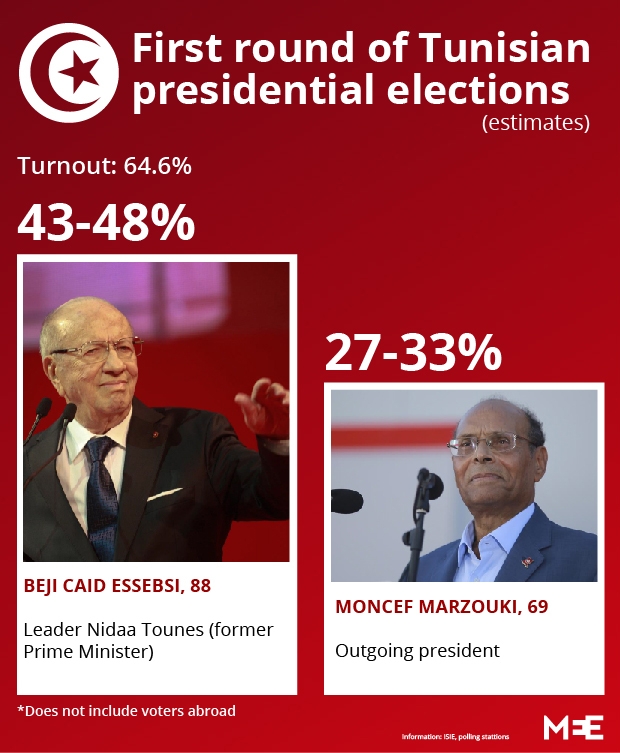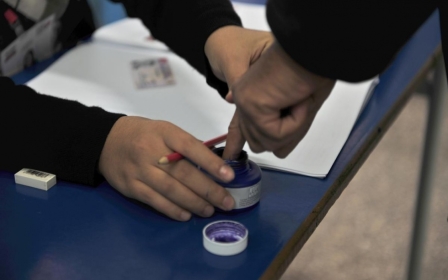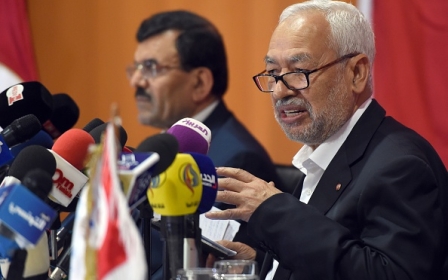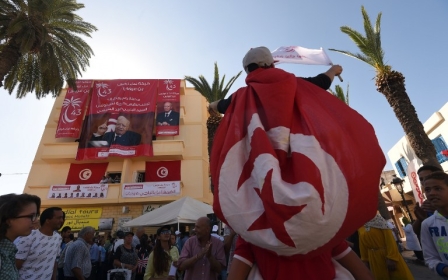Front-runners in Tunisia vote headed for presidential run-off
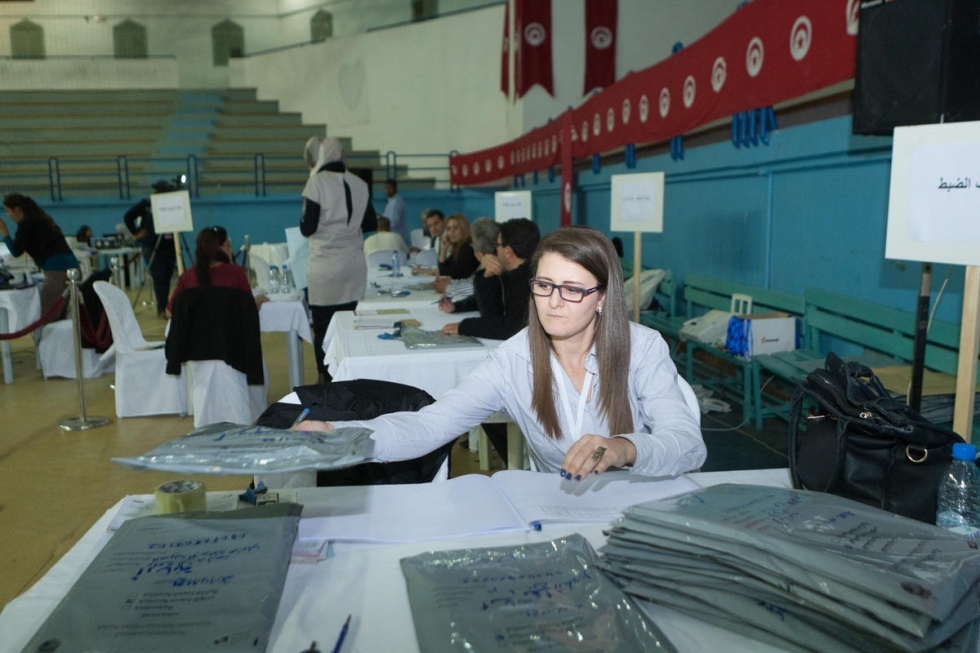
Tunisia’s presidential election is set to go to a run-off next month after neither of the top two candidates, Beji Caid Essebsi and Moncef Marzouki, received the 50 percent plus one vote needed for outright victory on Sunday.
Full official results will not be announced until Tuesday at the earliest but, with two thirds of the vote counted, the Anadolu news agency said Essebsi, a former speaker of parliament at the start of the dictatorship of Zine El Abidine Ben Ali and head of Nidaa Tounes, the party which won last month’s parliamentary elections, had won 42 percent. Marzouki, a human rights activist who has served as interim president since 2011, got 34 percent.
Two private polling organisations gave broadly similar figures based on interviewing people after they had voted.
The election is the culmination of Tunisia’s four year transition to democracy after a popular uprising overthrew the Ben Ali regime, sparking similar revolts in Egypt, Libya, Bahrain and Syria.
In spite of the presidential poll’s importance, the electoral commission said turnout was 60 percent in an electorate of 5.2 million people. Young people in particular seemed not to have taken part in great numbers, perhaps reflecting the lack of change the last three years have brought to youth unemployment as well as the advanced age of most of the leading contenders.
Twenty-seven names were on the ballot but five dropped out after the voting papers were printed. Essebsi will be 88 this week and Marzouki is 69.
Essebsi remains the clear front-runner for the next round which is provisionally arranged for 28 December. Much will depend on whether the losing contenders endorse one of the two. Hamma Hammami, a radical socialist who headed the Popular Front in last month’s parliamentary vote, came third on Sunday with 10 percent, according to the private polling organisations. His voters are more likely to go to Marzouki, but voters for Slim Riahy, a millionaire businessman who is sometimes compared to Italy’s Silvio Berlusconi and came just behind Hammami, will almost certainly go for Essebsi.
Ennahda, the Islamist party which was the leading force in the first elections in 2011, had no candidate on Sunday, nor did they endorse one. But they hinted they might change their minds for the second round. It is not clear how many Ennahda voters turned out for the first round, but if there were massive abstentions and Ennahda officially endorses Marzouki, this could have a significant impact. It might still be too little to overcome the margin which Essebsi enjoys from the first round and he remains the front-runner for the country’s top executive post.
Marzouki reacted to the unofficial results by challenging Essebsi to a TV debate. The Essebsi team had no immediate response.
“We’ll be focusing on people who chose not to vote in the first round,” Tarek Kahlaoui, a senior member of Marzouki’s campaign staff told MEE. “We’re sensing that in several provinces where Nidaa Tounes beat us in the parliamentary elections last month, we beat them this time. That’s in Sfax, Gafsa and Kasserine.”
The Marzouki camp has already opened talks with two other secular leaders, Mustapha ben Jaffa and Najib Chebbi who ran on Sunday, with a view to getting their endorsements.
Another card in Marzouki’s hand may be to raise questions about Essebsi’s health and insist that he publish full medical details. “Marzouki will decide whether to make this issue,” Kahlaoui said. Essebsi insists he is fit and vigorous and is campaigning energetically, but he has made no medical bulletins public.
In the first round, Marzouki concentrated his fire on the argument that an Essebsi victory would mean a return of authoritarian rule in a new guise.
The need for a run-off will mean a further delay in selecting a prime minister and a new government. Much will depend on whether Nidaa Tounes signals whether it will invite Ennahda to join a coalition government. This in turn is likely to affect Ennahda’s decision whether to endorse a candidate. Under the country’s new democratic constitution, the president chooses the head of the largest parliamentary party to form a government. The president is in charge of foreign affairs and defence while the government handles the economy and social issues.
New MEE newsletter: Jerusalem Dispatch
Sign up to get the latest insights and analysis on Israel-Palestine, alongside Turkey Unpacked and other MEE newsletters
Middle East Eye delivers independent and unrivalled coverage and analysis of the Middle East, North Africa and beyond. To learn more about republishing this content and the associated fees, please fill out this form. More about MEE can be found here.


